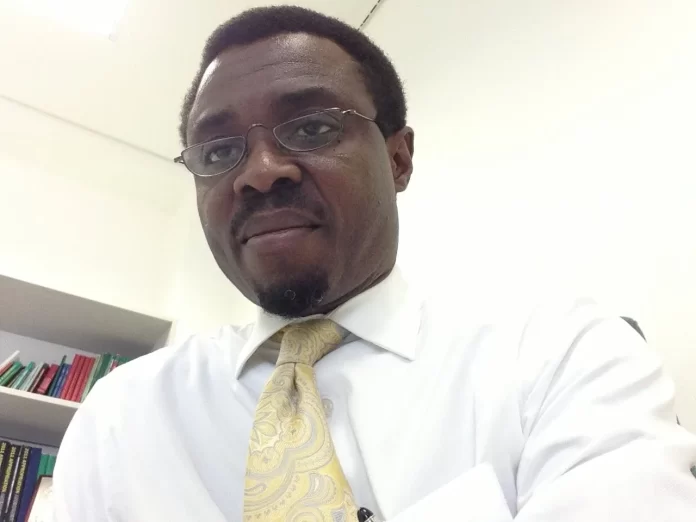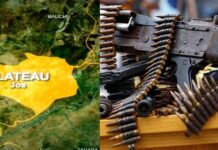Democracy the Africa model is not only cumbersome or structurally elaborate, ideologically defective, overtly transactional but implicitly expensive and too slow for a state desperate for development.
By Sonny Ogulewe
“Why am I saved if am wasting” This question was raised by Tova Friedman and I consider it relevant in this work with the hope that my conclusions would justify this curiosity.
Democracy is a common governance model in Africa and across the world. To what extent democracy has quickened development process in Africa is a thematic development issue that scholars are yet to take a firm position or find common grounds upon which to critically interrogate its suitability in Africa, particularly if it is actually consequential to accelerating Africa’s development process.
In Africa, under-development has been prevalent and seemingly intractable. According to reports “in 2024, Africa is estimated to have around 464 million people living in extreme poverty, which is a third of the continent’s population. This makes Africa the poorest region in the world and 23 of the world 28 poorest countries are in Africa”. Notably, all the countries in Africa but perhaps Estiwatini practice western democracy. Therefore, if democracy is coterminous with development as espoused by western scholars, then the above statistics has shown that democracy has failed Africa and has provided African scholars sufficient reasons to interrogate the validity of western development theory ostensibly weaved around democracy. This entrenched theory equally presupposes that any other form of governance besides western democracy is antithetical to development and essentially anachronistic in contemporary states’ governance processes.
As it were, this may not be entirely true when one juxtaposes the gains of enlightened or benevolent dictatorship against western styled democracies in Africa. There have been remarkable evidences suggestive of the fact that a spice of dictatorship has served Africa better in quickening the development process than western democracy particularly where the character of the “dictator” is progressive. This argument may not necessarily be popular and in fact runs contrary to the entrenched neo-colonial theory that western democracies as a supposedly governance model that allows everyone to participate in governance is best for Africa. However elegant this presupposition could be in theory, there are evidences that its practice in Africa has not recorded significant success.
Democracy presupposes that everyone participates in the political process directly or indirectly, there is the rule of law, respect for human rights and of course an independent and incorruptible judiciary. In Africa, does everyone actually participate in the governance process as hypothesized by western scholars? Are democratic rights sacrosanct? Are fundamental human rights respected particularly freedom of expression? Is there the rule of law, an incorruptible judiciary? Finally does democratic practice actually hasten development process? On the contrary, some scholars have argued that dictatorship is culturally intertwined with pre-colonial African societies and in fact has actually achieved more development than western democracy. This article is intended to provoke interest of scholars to actually interrogate this preposition within the context of development realities in Africa. Africa has had dictatorships of different variants and democracies. Which of them has enhanced the wellbeing of its peoples better?
Development theory is considered most appropriate theoretical approach to this work as it x-rays the fundamentals of governance. The purpose of governance irrespective of the structure is essentially to facilitate development. Development is the overall wellbeing of the citizens or basically the things that make the people happy and fulfilled. People do not feed on the structure of government rather the essential dividends of good governance. These include availability of social infrastructure like good roads, electricity, affordable healthcare delivery, cheap food and respect for fundamental human rights such as freedom of association, freedom of speech etc.
READ ALSO:
Trump vows to use military for mass deportation of undocumented migrants
There is a consensus of opinion among the classical, neoclassical and contemporary scholars that development is all about attaining a set of values that are critical to social development and regeneration of a people. The work of Somjee A, “Development Theory: Critique and Exploration, published in 1991, espouses the view that development is relative, but most fundamentally must appreciate the “significance of the diversity of development experience of different societies, their socially and culturally shaped processes of economic and political development, and then identify within such processes the core issues which lie at the heart of those societies’ development in general”. In his opinion, it is defective and illusionary to accept wholly the Western development paradigm that ironically intertwines democracy and development, without exploring the diversities or peculiarities of each social formation, which according to him falls into the false assumption that “all societies, sooner or later, will evolve economic and political institutions similar to those of the industrialized countries of the West”. Therefore, having deliberately ignored the cultural relativities of African societies and their adaptability to strange processes, the model is operationally flawed as far as Africa is concerned and accounts for why it has failed to hasten development in Africa.
Sadly, this view of western styled democracy has dominated all conversations on development particularly in the developing world and has given the West the impetus to exclusively validate governance processes across the world within the realm of their model as the global democracy policeman and enforcer ”while “ignoring most of the actualities and specific directions of their development processes… by chopping and slicing the social realities, so as to suit” these presumptions which are functionally defective.
One is therefore constrained to align with the Somjee A, to challenge this dominant view of development anchored on democracy of western model which has “often discouraged scholars from looking into the complexity of development processes – with their mind-boggling plurality, interrelationships, interactions, sequences, continuities, discontinuities and so on – from a more inclusive perspective” that would have exposed the inert cultural complexities that are distinctive to each society which are germane in the pursuit of their narrow development processes. Hence, western development paradigm is considered too restrictive and speculative and therefore unhelpful in the pursuit of development and governance process in the developing countries and particularly in Africa.
My argument therefore is that western democracy is not necessarily the answer to quickening development in Africa as contemplated by the western development scholars, reason being that it has been practiced in breach. In some jurisdictions even outside Africa, certain level of development has been achieved in certain other models of governance, whilst some supposed democracies have been abysmal failures. Benevolent dictatorship as a governance model where “the ruler’s intentions and actions are for the good of the people and it is characterized by efficient decision-making, rapid economic development, social stability and improved infrastructure” could actually solve the development challenge of some Africa countries if the hypocrisy associated with democracy could be minimized. In this instance, the case of Singapore under Lee Kuan Yew, Indonesia under Suharto, Libya under Col. Gadhafi and presently Rwanda under Paul Kagame are few examples to illustrate the functionality of benevolent dictatorship. This view does not make me an apologist for dictatorship of the Mobutu, Mugabe or Bokassa type, instead for a governance prototypical that breaks the structural barriers of establishment to engender the desired impetus in the people to be optimistic about the future of the state and work its development.
It could equally be argued that the evaluation and validation of democracies in Africa by the West is suspicious, relative and essentially not without contradictions. Historical evidences abound where the West supposedly supported and sustained vicious dictators who not only crippled development processes in their countries but equally committed heinous human rights violations. Mobutu Sese Seko of Democratic Republic of Congo and Emperor Jean Bokassa of the Central African Republic are two typical examples that contradict and diminishes the moral and ideological basis of this pontification. This is a source of confusion. This evidence therefore is suggestive of the fact that western democracy in Africa as a governance and development model is a huge ruse and in contradictions with itself. Hence, the earlier understanding that democracy of the western model serves neo-imperialist strategic interest and not a “divine” and appropriate governance model expected to hasten Africa’s development process is fundamental to Africa’s liberation from the stranglehold of western imperialism and underdevelopment.
In 1991, the Economist labeled Lee Kuan Yew a dictator. Amnesty International criticized his human rights record and United States Department of State queried his democratic credentials and fired relentless propaganda against him. But Yew had argued that western styled democracy was unsuitable for Singapore because it was culturally incompatible to the Singaporeans. Although, he was adjudged a dictator, he was able to leapfrog the economy of the Singapore to what has been described as the Asian miracle. Yew diversified the economy of Singapore from a primitive subsistence economy to a world class economy. Particularly, he focused on export-oriented manufacturing, encouraged foreign investment in electronics, pharmaceuticals and finance, invested heavily in human capital development and world class infrastructure most importantly in transportation sector and maintained a high level of fiscal discipline.
Consequently, Singapore achieved GDP average annual growth of between 8% to10%, significantly reduced unemployment from 14% in 1959 to less than 2% in 1990, and reduced poverty from a whopping 34% in 1959 to less than 1% in 1990 and of course increased per capita income of Singapore from $1,500 in 1959 to $22,000 in 1990.
Yet he was criticized by the democracy policemen for being authoritarian, centralized power, limited human liberties and suppressed opposition. But what his opponents could not deny was the fact that he achieved economic prosperity which is the crux of governance, achieved social stability and safety, was corruption free and ensured that he held regular elections.
In Indonesia, Suharto who was its second president that ruled between 1966 and 1998 was perceived by the west as a dictator and widely vilified for his perceived or contrived anti-democratic credentials. The Amnesty International, Human Rights Watch and the US Department of State were consistent in criticizing his administration on the basis of human rights. Yet Suharto achieved significant economic growth and stability, achieving an average annual growth of 7%. His policies liberalized and protected foreign investment, expanded domestic oil production, reduced inflation from 630% in 1966 to less than 9% by 1972, increased living standards of significant population of the Indonesians and of course achieved massive infrastructure development that has served as the foundation of Indonesia’s economic growth and stability; made access to education a key component of his administration leading to massive human capital development while he successfully pursued the policy of family planning that had put the population at a manageable level.
In Africa, there are also successful leaders that were christened dictators by the West. Libya under Col. Mummar Gaddafi is a good example of such leaders. Gaddafi took over the government in Libya following a coup in 1969 and was the President until he was eliminated by the West in 2011. Gaddafi was criticized for his anti-democratic credentials which he did not make any attempt to deny, but under his administration there was rapid economic growth and stability, there was the resurgence of national pride, there were free health care and education for every citizen of Libya, advancement in women’s right , education and employment; special housing scheme for the citizens; massive infrastructural development and major cultural revival which resonated with his people’s aspirations.
In the same vein, Kagame has been criticized by the West for his perceived anti-democracy credentials. He has been accused by the same institutions and establishments of being authoritarian, yet under Kagame peace has been restored in the ethno-fragile African country and has made monumental economic progress with considerable access to affordable healthcare and human capital development. The per capita income of Rwanda in 1994 was about $290, poverty rate was estimated to be about 78%. But today, average GDP growth is about 8% annually between 2002 and 2014 and rated one of the fastest growing economies in Africa with per capita $723 in 2014 and poverty rate about 39% in 2014 declined to 8.3% in 2022, according to Rwanda Central Bank.
Botswana, is one of the most successful democracies in Africa and has been adjudged the poster boy of democracy by proponents of West democracy in Africa. Granted that Botswana is one of the success stories, what is to be said about Nigeria that makes pretentious grandstanding of democracy yet the economy has continued to decline; corruption has become systemic; national fault lines exacerbated; increasing human rights violations; abuse of democratic rights as election winners are known before elections take place, judiciary significantly compromised; decayed social infrastructure ; the people live in fear of their lives while government is becoming increasingly too weak to protect anyone even as Nigeria has gained the notoriety as the poverty capital of the world, human development index continues to be in decline, ranking 164th place in the HDI table of 191 countries in 2021, with government neither making promises nor taking steps to stop the decline and recurrent expenditure to run large political governance structure continues to skyrocket with little left to build infrastructure that would stimulate development. Democracy the Africa model is not only cumbersome or structurally elaborate, ideologically defective, overtly transactional but implicitly expensive and too slow for a state desperate for development.
In this circumstance, one is constrained to again distance self from the popularly held view that democracy is best for Africa, but rather hold the view that a spice of benevolent dictatorship would probably unleash our development potentials instead of being manacled by a governance model that is unhelpful in addressing our development challenges in a timely and sustained manner. Former President Obasanjo unarguably going by his performance in eight years probably fits our contemplation of a visionary leader that would have saved us the present circumstance if we had allowed him an extension and refused to be cajoled to acquiesce with a defective vaccine. Many Nigerians share my thoughts but are either afraid or too ashamed to acknowledge that the botched 2006 constitutional amendment was a monumental error.
Essentially, it could be deduced from foregoing that the fundamental purpose of governance is the attainment of the best possible comfort for the people and that the character of a leader irrespective of the governance model is intrinsic to the attainment of this goal. Africa therefore needs strong leaders, visionary leaders; detribalized; highly intellectual and audacious leaders with the ability to assemble capable hands to man top government positions; not fantastically corrupt or pretentious about integrity ; ability to carry out reforms with a human face and ability to enjoy global reverence predicated on visible results.
In Africa, considering our development deficits, the time has come for us to interrogate our present governance model with the aim to evolving a distinctive governance model that best addresses our circumstances, culturally compatible and that aligns with our desperation to hasten development rather than being pretentious about western democracy while wasting away in poverty. These are entirely my thoughts.
Sonny Ogulewe Ph.D, wrote from Abuja















